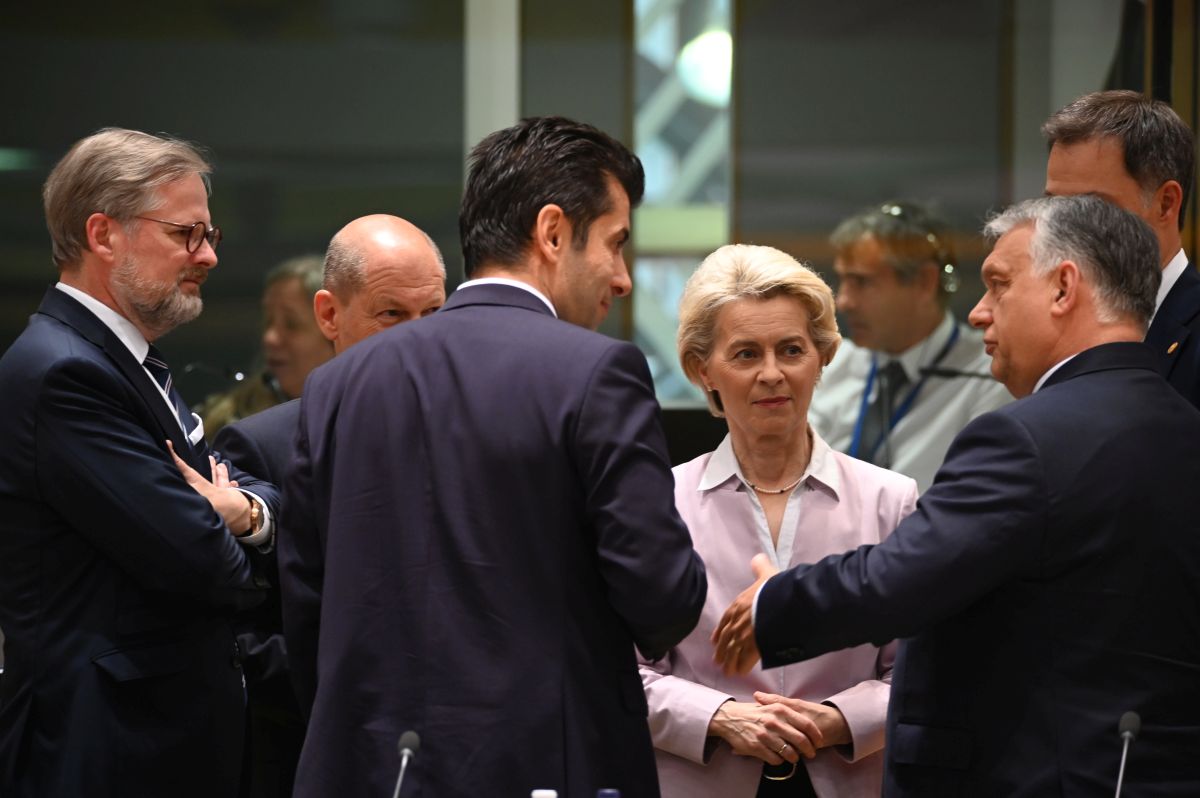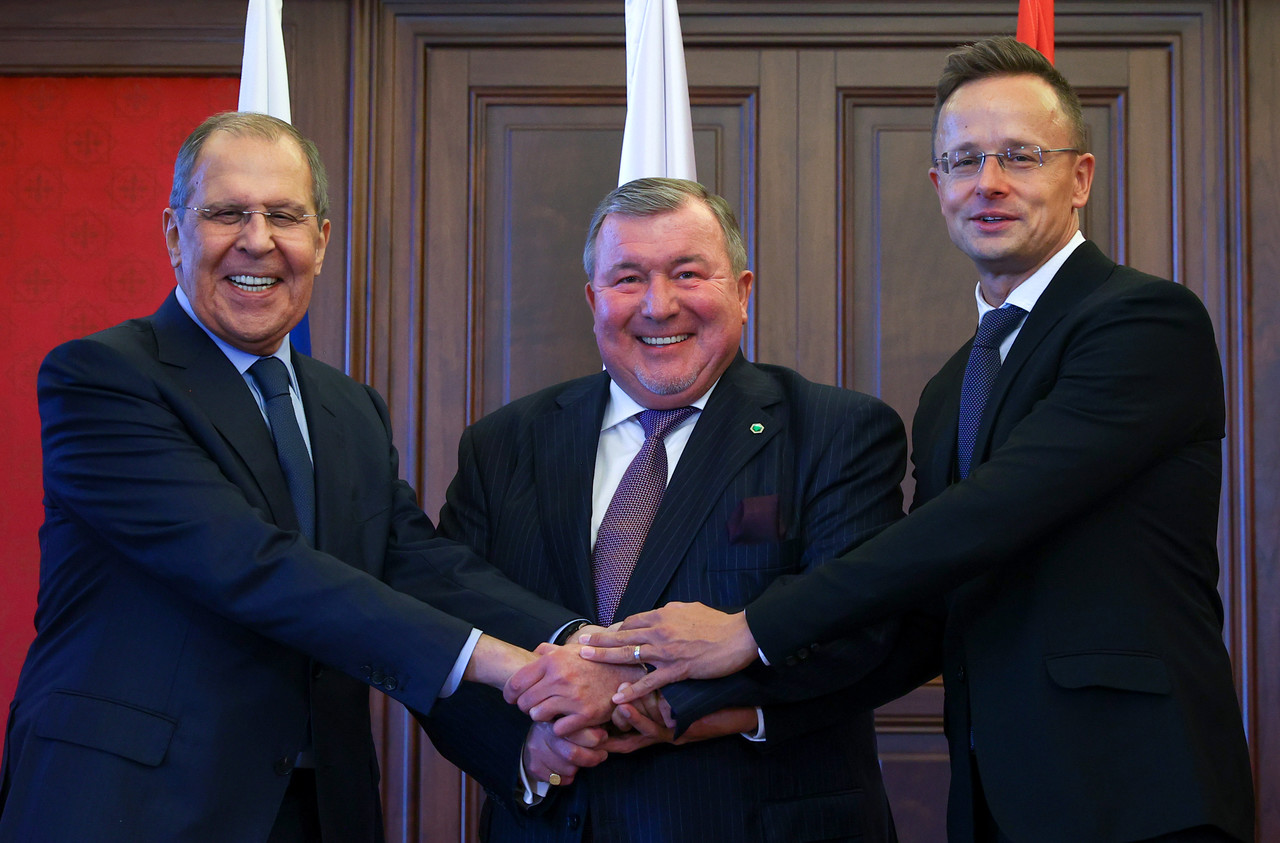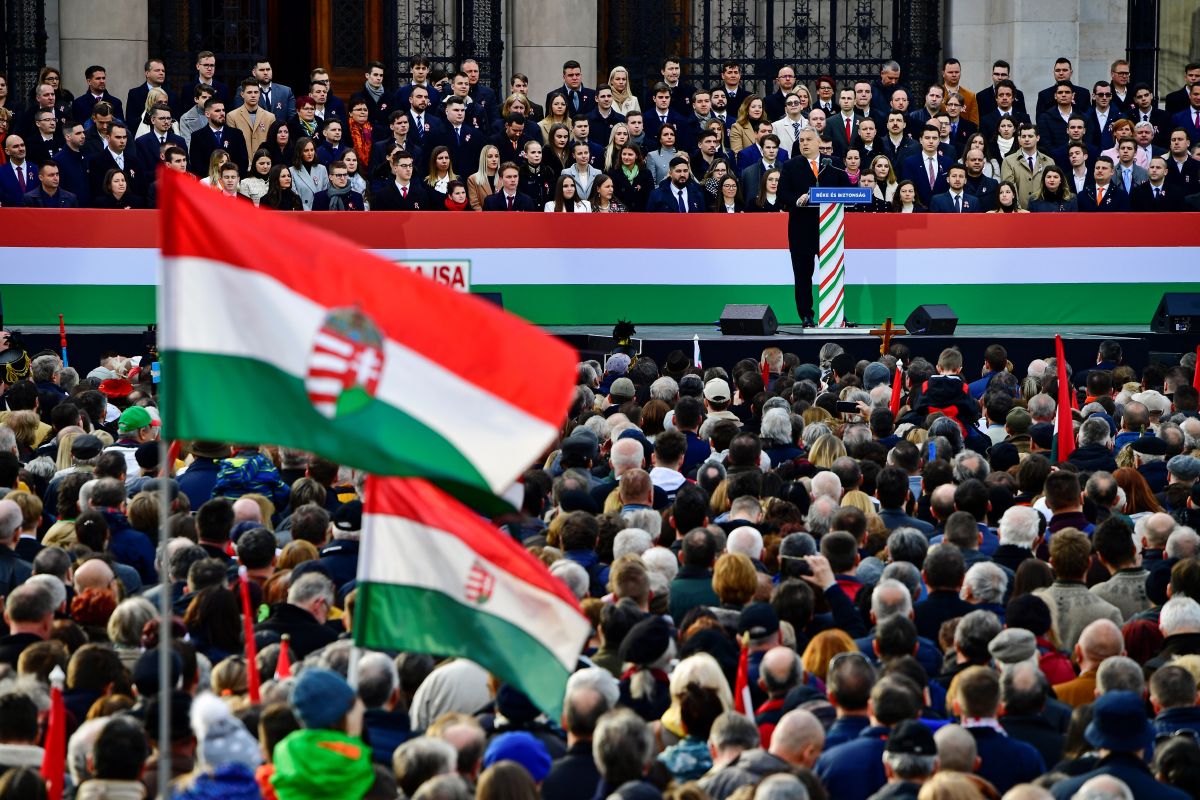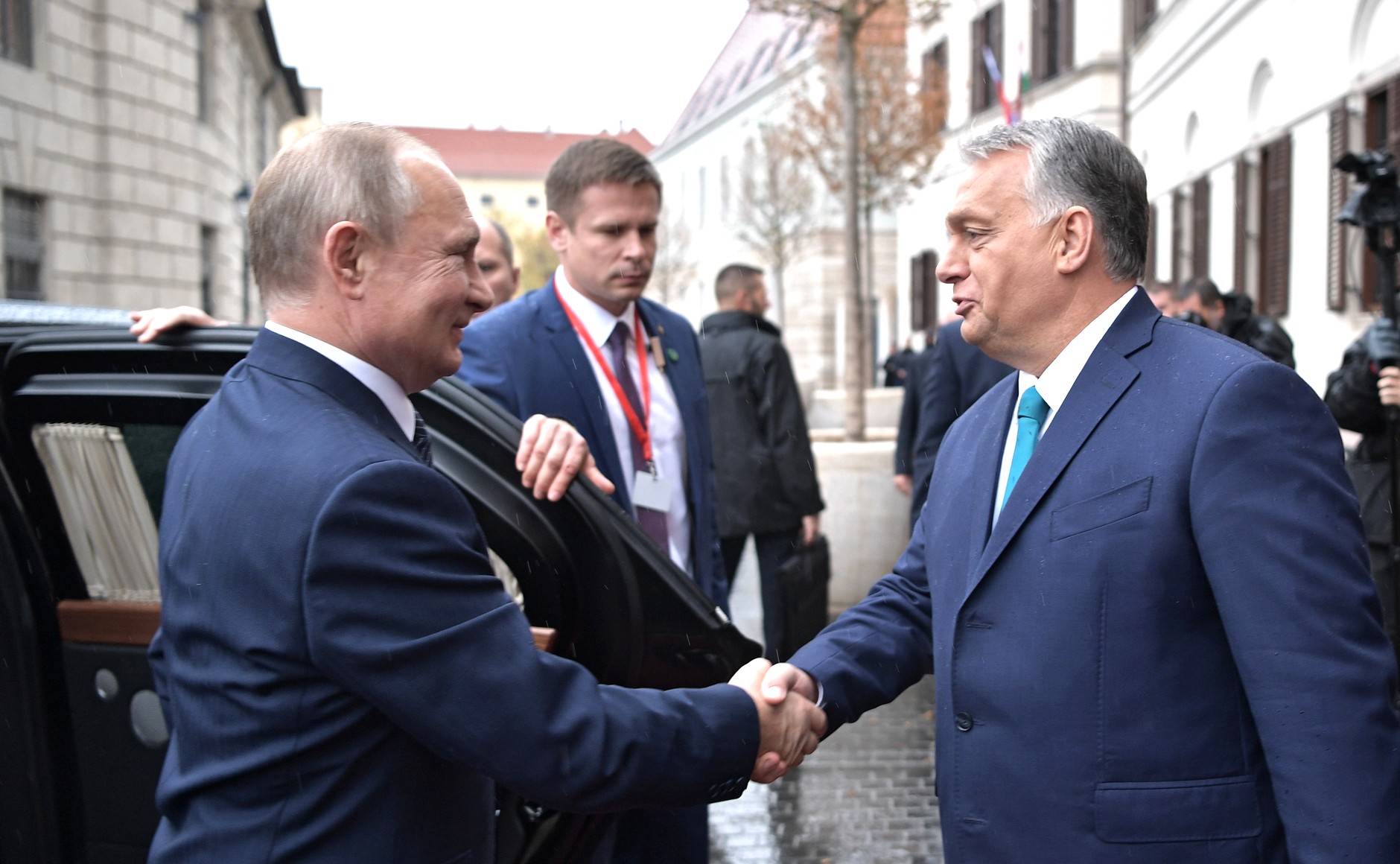Challenges for the Fifth Government of Viktor Orbán
The goal of the new Hungarian government is to reduce the negative effects of overlapping crises that could lead to social discontent. To this end, it intends to lower the budget deficit by introducing new taxes, maintain low energy prices using Russian oil and gas, and regulate food prices. Although access to money from the EU’s reconstruction fund would improve the condition of public finances, the authorities are not willing to meet the European Commission’s conditions. This will result in Hungary’s growing indebtedness and isolation within the EU.
 Aleksiej Witwicki/ Forum
Aleksiej Witwicki/ Forum
After Fidesz’s victory in the parliamentary elections in April, which ensured a two-thirds constitutional majority, the fourth consecutive—altogether fifth—government of Viktor Orbán was formed on 24 May. Its structure proves the centralisation of competences and the strengthening of the prime minister’s cadre. His political cabinet office responsible for public communication of the government’s activities has been expanded into a ministry. It will also oversee civilian intelligence and digitisation. Other economic matters (finance, construction and investment, technology and industry, innovation, and expansion of the Paks nuclear power plant) have been distributed to five out of the 11 ministries, however, the Ministry of Defence will also be focusing on economic matters via arms purchases and defence industry development. Most of these ministries will be run by business people from the economic elite of Fidesz and others with links to it. At the same time, there will be no separate ministries to manage key public services, including education, healthcare, or social policy. These areas were subordinated to the Ministry of Interior.
Economic and Social Challenges
The government is facing various macroeconomic challenges. Experts expect a significant economic slowdown at the turn of 2022 to 2023. Inflation in May amounted to 10.7% (in the case of food, an average of 18.6%), which will reset the real wage growth this year. In Hungary, public debt per capita in 2021 was the highest in Central Europe and continues to grow, and its financing becomes more expensive along with rising interest rates. Additionally, mainly due to pre-election transfers, the budget deficit in May reached 87% of the planned total for this year. As a result of Hungarian economic policy, in June the forint plunged to an all-time low against the euro (its exchange rate was a record low also against the Polish zloty).
The situation is aggravated by unresolved long-term social problems. The income gap is growing between the capital and a few large cities and the rest of the country. The average net salary in Hungary, including all employees, in 2020 amounted to 210,000 forints (about €530), but in 87% of localities it was lower. The incomes of about 20% of the population are below subsistence level (according to national calculations, averaging about €250 per month). Hungary’s minimum wage is one of the lowest in the EU (around €540 euro gross), and individual household consumption—an indicator of real standard of living—is the second lowest in the EU after Bulgaria. In addition, the lowest level of social mobility among European OECD countries makes it practically impossible to break out of poverty (according to the organisation’s report, in Hungary, like in China or India, it takes seven generations for a household belonging to the poorest 10% to achieve average income). The reasons for this are at least threefold: shortcomings of the education system, in which low wages (the lowest in the EU for beginning teachers) and poor working conditions have been causing protests and strikes; a housing crisis and benefits that primarily favour people with high incomes. In addition, in the last 20 years, expenditure on health has decreased in relation to GDP, which causes very bad health indicators compared to other EU countries. The state plays an ever smaller role in this field with the growing turnover of private service providers. As a consequence, for example, excessive deaths in Hungary during the COVID-19 pandemic to date are the highest in the EU.
Instruments in Domestic Politics
The government is proposing an ad hoc alleviation of these problems. Therefore, it implements social measures in such a way as to burden the budget as little as possible. Although it has been subsidising low utility bills for households for years from budget revenues—one of the most popular measures—it does not compensate businesses for the costs of freezing the prices of gasoline and a few food products (extended until 1 October). In June, the government also announced a package of budgetary adjustments for 2022-2023 amounting to around 7% of GDP. It mainly consists of new taxes imposed on, among other sectors, banks, energy companies, airlines and retail chains. Although the authorities have announced penalties for shifting the costs of these taxes onto consumers, in practice it will be inevitable.
The government is to facilitate the extension of the state of emergency in force from March 2020 because of the COVID-19 pandemic. However, this time the government refers to the threat of war. This will enable it to rule by decree without debates and parliamentary control. It is preparing to, among others, further restrict teachers’ right to strike. Other possible actions, applied in the last two years in the state of emergency, include a ban on medical workers or law enforcement officers to quit working and further restrictions on freedom of expression. The public and pro-government media, which make up the majority of the media market, play a key role in controlling the public mood by implementing the authorities’ continuous information campaign.
Instruments in Foreign Policy
In external actions and in the EU, the government's possibilities are narrowing. It’s blackmail against the European Commission based on demanding funds for agreeing on the sixth sanctions package against Russia was eliminated through Hungary’s short-term exemption from the ban on imports of Russian oil. As a result, the Hungarian government continues to work under time pressure to obtain resources from the EU’s reconstruction fund, which are included in the financial measures package reducing the budget deficit. The task of a new minister without portfolio, former EU Commissioner Tibor Navracsics is to persuade the European Commission to adopt Hungary’s national reconstruction plan and to improve Fidesz’s relations with the European People’s Party. However, he is struggling with Hungary’s increasing image losses. The government opposed the inclusion of Russian Orthodox leader Patriarch Kirill, a fierce supporter of the Russian invasion of Ukraine, on the EU’s sanctions list and in June vetoed the Union’s adoption of a corporate minimum tax, after which the Hungarian permanent representative to the EU, Tibor Stelbaczky, resigned.
Mitigating the effects of Hungary’s isolation in the EU, due to its ambiguous reaction to Russia’s aggression against Ukraine, is the task of President Katalin Novák, who has held office since 10 May. The former vice-president of Fidesz speaks more clearly than the government on Russia’s responsibility and tries to improve the state’s relations primarily with its partners from Central Europe (she paid her first official visits to Warsaw, Berlin, and Prague). However, this does not substantially affect the policy of the government, which still hopes to maintain trade relations with Russia and subordinates its attitude to its aggression to this goal. There is also no indication that Hungary intends to limit economic relations with China.
Conclusions
The Hungarian government will not undertake structural reforms in its next term in office, as this could generate conflicts and weaken its support in the society, as well as provide evidence of irregularities in the management of the state, as accused by the European Commission. The government will focus on measures that strengthen Fidesz’s economic elite and bring voters small but immediate benefits. The voters prioritise low utility bills, which the government therefore cannot eliminate. This is also why relations with Russia and access to its raw materials are of key importance to Hungary. Provisional measures will not alleviate the growing social problems (including the pauperisation of society). However, there are no signs of social solidarity that could cause widespread opposition or influence the decision-makers.
The European Commission’s accusations, based on which it is blocking Hungary’s access to resources from the reconstruction fund, concern structural problems, including non-transparent tenders and corruption, and are therefore difficult to overcome. In addition, the Hungarian government continues to generate disputes on the European scene, for example, by vetoing joint actions, which lowers the chances for a compromise. The lack of these funds will have serious macroeconomic consequences for Hungary, whose indebtedness will increase.
Marginalised in the EU because of its position on the Russian aggression and facing with major problems with the rule of law, Hungary is in great need of partners in the Union. It is clearly trying to improve relations with Poland, which is in a comfortable situation as it no longer relies on Hungary’s support in matters relating to the rule of law. Poland can use the absence of such dependency to shape its regional cooperation more freely.





